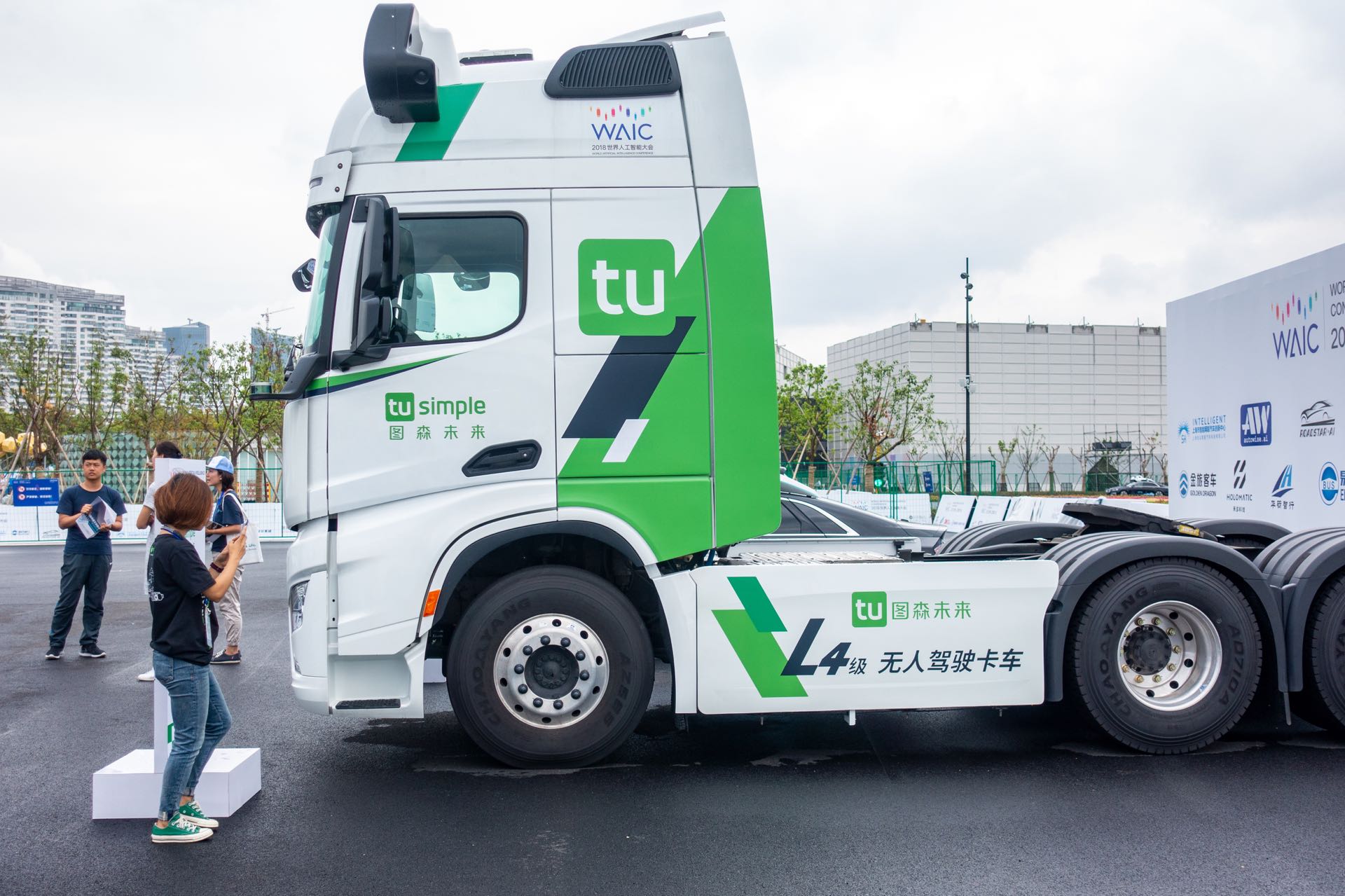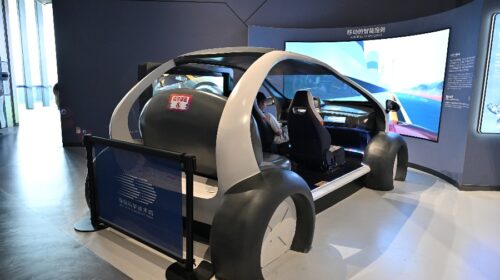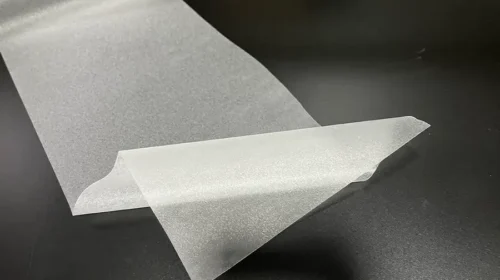TuSimple Sacks Chairman, CEO and CTO on Insider Dealing Suspicions

Autonomous truck driving firm terminated co-founder Hou Xiaodi after learning of undisclosed dealings with a Chinese rival whose CEO was another TuSimple co-founder
Key Takeaways:
- TuSimple sacked Hou Xiaodi, its co-founder, CTO, CEO and chairman, after discovering he engaged in undisclosed dealings with a Chinese rival
- The company’s shares fell 46% after the announcement, demoting it from clear leader in its sector to more comparably valued with its peers
By Doug Young
Talk about blowout.
The going was never going to be easy for TuSimple Holdings Inc. (TSP.US), a leading maker of autonomous truck technology that was getting caught up in geopolitical tensions between the U.S. and China. But a shocking new announcement has suddenly stripped the company of its core executive, Hou Xiaodi, who was serving in multiple roles as chairman, CEO and CTO before his removal by the board on Oct. 30.
While the latest twist in TuSimple’s plight initially looks political, and Hou even implies that politics were involved in a response on his LinkedIn account, the reality may be far simpler.
In our view, the chain of events leading to Hou’s termination appears linked to a series of dealings with a rival company in China that went unreported to the board. Such insider dealings used to be quite common in China, including a classic case involving French food giant and Danone (BN.PA), which accused local business partner Wahaha of stealing property from their joint venture and using it to make its own virtually identical products.
As we’ve said, this kind of blatant intellectual property theft from a company by insiders is thankfully becoming less and less common as China’s business culture and intellectual property protection mature. But this latest case involving TuSimple seems to be a variant on the older formula, which essentially combines the older practice of insider dealing and the newer element of geopolitical risk.
Not surprisingly, and perhaps even believably, Hou professes his innocence on his LinkedIn post, referring to TuSimple as “my baby.” And frankly speaking, we may even believe him when he implies that he meant no harm to that “baby,” the same way a parent would never harm an offspring.
But the board didn’t see it that way. Neither did investors, who dumped TuSimple’s stock, sparking a 46% slide for its shares on Monday after the announcement came out.
To understand all this, and what led up to Hou’s shock firing, we need to backtrack a bit and delve into TuSimple’s recent history. The company was founded in 2015 by a group including Hou, whose background is in artificial intelligence, and Chen Mo, whose background was in gaming. The company hoped to make riches by automating the driving of big-rig trucks, which is simpler than cars because most such trucks typically travel between cities on highways where driving conditions are far simpler than in cities.
The company focused most of its initial efforts on the U.S. and China. As time wore on, its U.S. operations were advancing much faster than those in China. At the same time, data security concerns in both countries began creating problems for the company as U.S.-China tensions grew. That led to reports that TuSimple was planning to split into two separate companies by selling off its China assets to focus on its more advanced U.S. operations.
In a move that was somewhat unexpected at the time but now appears related to Hou’s sudden firing, the company announced in March that co-founder Chen would be leaving his position at the time as chairman, and that its CEO Lu Cheng would be departing as well. Hou, who was then TuSimple’s CTO, took over the chairman and CEO roles, as well as president.
Commercialization drive
At the time of the March executive reshuffle, TuSimple explained that the departure of Chen and Lu was part of the company’s commercialization drive, after it passed an important milestone late last year by successfully trialing its technology on a highway in the U.S. state of Arizona. But now it seems other factors may have been behind that shakeup.
In a TuSimple stock exchange filing explaining Hou’s firing, the board says it took the action after discovering that under Hou’s direction, TuSimple had been engaged in cooperative activities with a company called Hydron Inc. without informing the board. What’s more, the board said it discovered Hydron has “significant operations in China.” It also learned that Chen Mo – who had left his position as TuSimple’s chairman just eight months earlier – was one of Hydron’s founders and also its CEO.
The implication is obvious from here, namely that Hou was secretly helping to transfer information from TuSimple to Hydron, much the way that Wahaha took product information from its Danone joint venture. Based on a circumstantial analysis, the collaboration in TuSimple’s case was probably aimed at positioning Hydron to acquire TuSimple’s China assets as part of the company’s split-up we described above.
Previous media reports had indicated that private Chinese car maker Geely was making a bid for TuSimple’s China assets, which TuSimple had hoped to sell for $1 billion or more. It’s unclear if Geely has any relationship with Hydron, or whether that potential deal was separate from any different bid that Hydron might have been preparing to make for TuSimple’s China assets.
Neither TuSimple nor Hou addressed the possibility of a Hydron bid for TuSimple’s China assets in their separate statements.
TuSimple simply said that after conducting its own investigation, it concluded “that a change of chief executive officer was necessary.” Hou called the board’s processes and decisions “questionable at best,” and denied any wrongdoing. “I can say with a clear conscience I have always acted and will act with integrity and in the best interests of TuSimple,” he said.
In the meantime, TuSimple named two non-Chinese as its interim CEO and chairman. It said Ersin Yumer, who was the company’s executive vice president of operations and also has a background in artificial intelligence, will take over as president and CEO. Independent director Brad Buss will take over as chairman.
The company also unexpectedly released its third-quarter results that showed the latest progress in its commercialization drive, though that did little to stop the slide in its stock. Its shares now trade at a price-to-book (P/B) ratio of 1.2, down from a much higher ratio of 5.3 a year earlier.
TuSimple’s accelerating fall from grace means its stock, which was once the clear leader among its peers, now trades roughly at the same level as rivals like Aurora Innovation (AUR.US) and Embark Technology (EMBK.US), which trade at P/B multiples of 1.1 and 0.6 times, respectively. It seems that nothing is simple for TuSimple anymore, though perhaps this latest series of developments will speed the split of the company’s U.S. and China operations.
To subscribe to Bamboo Works free weekly newsletter, click here






